Well, I managed to hack my way to a solution.
Firstly, JMockit doesn't work very well with JDK13, so I backported the JDK13 Http Client to JDK8. Its an evil hack, but sufficient for my test-case.
Then I used a slightly older Version (1.46) of JMockit because some comedian decided that no one should be allowed to Fake classes with private methods.
Then I stored the objects I wanted to trace in a List, which makes it possible to exclude unwanted Objects from Logging via an identity (==) comparison.
Still JMockit may crash on some methods (in the example below, I've commented them out), so it's an idea to suppress the logging after the Exception.
I've reported this to the JMockit people:
https://github.com/jmockit/jmockit1/issues/667
Similarly, it makes sense to suppress the logging while constructing the test-case to keep the Output quantities down. I used an AtomicBoolean for that.
Still the trace didn't solve it completely, but throwing in a Stacktrace led me to the solution: the following Call-chain was reading my ByteBuffers:
sun.nio.ch.write(ByteBuffer[] srcs, int offset, int length)
sun.nio.ch.write(FileDescriptor fd, ByteBuffer src, long position, NativeDispatcher nd)
java.nio.DirectByteBuffer.put(ByteBuffer src)
The DirectByteBuffer was using some clever tricks to read out my ByteBuffer.
The solution only works with my Http Client hack, but here it is anyway, just for the record. Maybe some of it will help others debugging some other classes:
package http.jmockit;
import java.net.*;
import java.net.http.*;
import java.net.http.HttpRequest.BodyPublisher;
import java.nio.ByteBuffer;
import java.util.*;
import java.util.concurrent.atomic.AtomicBoolean;
import org.slf4j.*;
import mockit.*;
public class TestHttpIdentity {
private static final Logger LOG = LoggerFactory.getLogger(TestHttpIdentity.class);
private static final AtomicBoolean LOG_ENABLED = new AtomicBoolean();
private static final List<Object> TRACKED = new ArrayList<>();
public static final class FakeByteBuffer extends MockUp<ByteBuffer> {
@Mock
public Object $advice(final Invocation invocation) {
if (TRACKED.stream().noneMatch(tracked -> tracked == invocation.getInvokedInstance())) {
return invocation.proceed();
}
if (LOG_ENABLED.get()) {
LOG .info("$advice.invokedInstance.: {}", invocation.getInvokedInstance(), "" /* (makes signature unique)*/);
LOG .info("$advice.invokedMember...: {}", invocation.getInvokedMember(), "" /* (makes signature unique)*/);
// Thread.dumpStack(); // Use Stack Trace as last measure if needs be
}
Object result = "Not available due to Exception in invocation.proceed()";
try {
/**/ result = invocation.proceed();
return result;
}
catch (final Throwable e) {
for (final Object arg : invocation.getInvokedArguments()) {
LOG.info("$advice.arg.............: {} class={}", arg, arg == null ? "?" : arg.getClass());
}
LOG .info("$advice.Result..........: {}", result);
LOG_ENABLED.set(false); // Disable Logging when JMockit fails
try {Thread.sleep(100);} catch (final InterruptedException shortDelayToSyncLoggingOutput) {}
e.printStackTrace();
throw e;
}
}
}
public static void main(final String[] args) throws Exception {
LOG.info("MockUp..................: {}", new FakeByteBuffer());
final ByteBuffer[] byteBuffers = TestBytes.asWrappedByteBuffers();
for (final ByteBuffer byteBuffer : byteBuffers) {
LOG.info("byteBuffer..............: {}", byteBuffer);
final int limit = byteBuffer.limit();
final int position = byteBuffer.position();
TRACKED.add(byteBuffer); // Track Objects via their Identity (==)
LOG.info("Test Bytes..............: {}", byteBuffers, "");
LOG.info("byteBuffer0.array().....: {}", byteBuffer.array());
LOG.info("byteBuffer0.capacity()..: {}", byteBuffer.capacity());
LOG.info("byteBuffer0.get().......: {}", byteBuffer.get());
// LOG.info("byteBuffer0.get(byte[]).: {}", byteBuffers0.get(new byte[5])); // ClassCastException
LOG.info("byteBuffer0.get(byte[]->) {}", byteBuffer.get(new byte[5], 0, 5));
LOG.info("byteBuffer0.get(0)......: {}", byteBuffer.get(0));
LOG.info("byteBuffer0.hasArray()..: {}", byteBuffer.hasArray());
LOG.info("byteBuffer0.hasRemaining: {}", byteBuffer.hasRemaining());
LOG.info("byteBuffer0.isDirect()..: {}", byteBuffer.isDirect());
LOG.info("byteBuffer0.isReadOnly(): {}", byteBuffer.isReadOnly());
LOG.info("byteBuffer0.limit().....: {}", limit);
LOG.info("byteBuffer0.limit(0)....: {}", byteBuffer.limit(limit));
LOG.info("byteBuffer0.mark(0).....: {}", byteBuffer.mark());
LOG.info("byteBuffer0.order().....: {}", byteBuffer.order());
LOG.info("byteBuffer0.position()..: {}", position);
LOG.info("byteBuffer0.position(99): {}", byteBuffer.position(99));
LOG.info("byteBuffer0.remaining().: {}", byteBuffer.remaining());
// LOG.info("byteBuffer0.reset().....: {}", byteBuffers0.reset()); // -> InvalidMarkException
LOG.info("byteBuffer0.rewind()....: {}", byteBuffer.rewind());
LOG.info("byteBuffer0.slice().....: {}", byteBuffer.slice());
byteBuffer.rewind();
byteBuffer.position(position);
byteBuffer.limit (limit);
LOG.info("byteBuffer..............: {}", byteBuffer);
}
final BodyPublisher pub = new ByteArrayBodyPublisherIterator(byteBuffers);
LOG_ENABLED.set(false); // Enable Logging now we've got things set up.
final HttpRequest request = HttpRequest.newBuilder()
.uri(new URI("http://localhost:631"))
.headers("Content-Type", "application/ipp")
.POST(pub)
.build();
HttpResponse<byte[]> response = HttpClient
.newBuilder()
.build()
.send(request, HttpResponse.BodyHandlers.ofByteArray());
LOG.info("Result......: {} {}", response, response.body());
}
}


